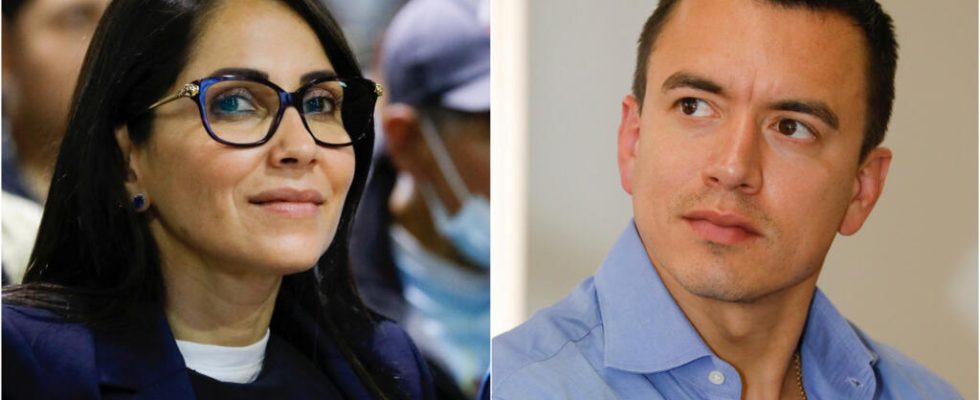More than 13 million Ecuadorians are heading to the polls this Sunday for the second round of the presidential election. It is contested between Luisa Gonzalez, a left-wing candidate close to former president Rafael Correa, and Daniel Noboa, son of the richest man in the country. In this country undermined by the violence of organized crime and where one of the candidates was assassinated before the first round, the issue of returning security is obviously central. But voters expect much more.
2 mins
On the left, Luisa Gonzalez, lawyer, heir to former president Rafael Correa. She promises the return of the state, starting in prisons and in the streets where gangs are out of control. On the right, same thing for the candidate Daniel Noboa (35 years old) who wants to build floating prisons at sea for the most dangerous prisoners.
If the start of the campaign saw the theme of insecurity gain the upper hand due in particular to the assassination of one of the candidates and the significant deterioration in recent months. This is far from being the only campaign theme. The two finalists had to stand out later during the debate between the two rounds. Luisa Gonzalez defended public investments to promote job creation. Opposite, the son of banana magnate and billionaire Alvaro Noboa defended the role of the private sector in improving the economy.
Ecuadorian voters have concerns about insecurity, but they are also interested in other proposals.
Andrés Chiriboga (Sciences-Po Paris) on the issue of insecurity and the candidates’ proposals
Largely favorite, Daniel Noboa losing momentum
Appearing less comfortable than her, he lost a few points in the polls. But he remains the favorite, because he rides on a feeling well anchored in Ecuador: the rejection of Koreanism, this movement linked to former president Rafael Correa sentenced to 8 years in prison and now in exile in Belgium and from which Luisa Gonzalez comes . “ The result of Sunday’s election will be very close », analyzes Andrés Chiriboga, researcher and professor at Sciences-Po Paris.
The new elected official will in any case have little time to keep his or her promises. He or she will govern until the beginning of 2025, the end of the mandate of outgoing President Guillermo Lasso who had called early elections to avoid his dismissal amid accusations of corruption.
Also listenInternational report – Ecuador: a second round of the presidential election in a tense security context
